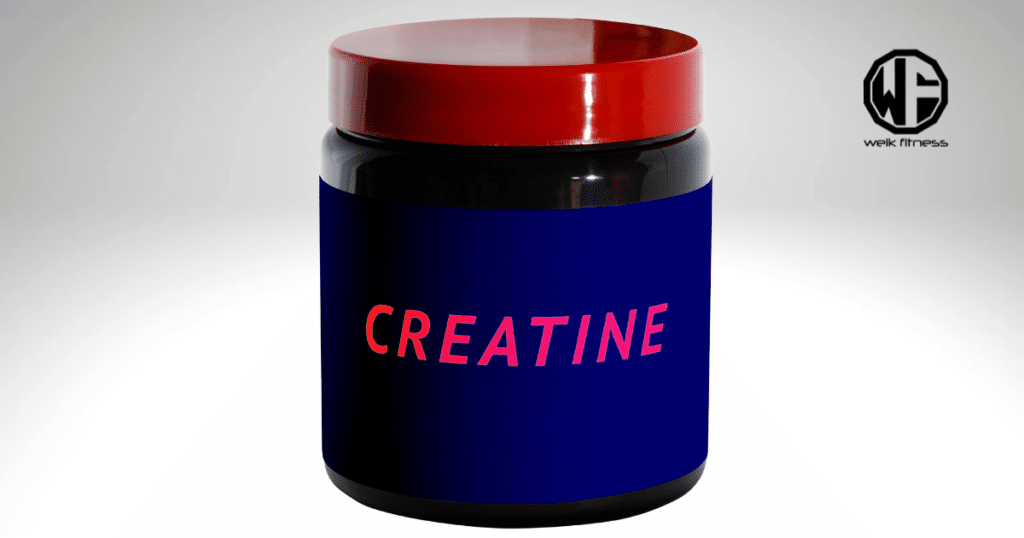Creatine For Neurological Health
Creatine is the most studied and looked at supplement on the market, and for good reason—it works. Majority of competitors and those in the industry are already using creatine as an ergogenic aid to help them recover faster and aid in adding lean mass to their physique. But new research is showing there might be more behind the fine white powder than we first imagined. Now, the discussion is using creatine for neurological health reasons.
Disclaimer: This article is for informational purposes only and is not meant to treat or diagnose any condition. It is recommended that you speak with your doctor before starting any exercise program, changing your daily nutrition, or adding any supplements to your regimen.
Table of contents

Creatine Found in Food
Certain foods that we eat contain creatine, such as steak, chicken, fish, and eggs. However, in order to get enough to truly benefit from this ingredient, you would have to consume high quantities of the whole food option.
For that reason, many go the route of purchasing creatine in either its powder or pill form. While not expensive, newer varieties such as creatine HCl can get pricey. Monohydrate, however, still seems to fit the bill for most people and is much easier on the wallet.
You may be able to see some benefits from adding foods that contain creatine, but if you really want to see the best results possible, grab a supplement. You’ll need a decent dose of creatine for neurological health benefits.
Creatine for Neurological Health Benefits

With the most recent research coming out on creatine for neurological health, scientists were left scratching their head that if there is a significant amount found in the brain, how supplementation would affect things. Researchers believe that it’s the creatine already found in the brain that can help prevent neurological disorders and damage from trauma, but there may be added benefits to supplementing with more.
Related Article: Maximize Muscle Growth — The Benefits of Creatine CEE
Researchers looked at previous studies using animals and said that supplementing with creatine has “neuroprotective effects in a variety of neurological conditions including traumatic brain injury, Huntington’s Disease, and Parkinson’s Disease.”
Athletes Who Suffered Brain Injuries
When researchers looked at athletes who sustained brain injuries, they noticed not only was there cognitive impairment, but also a secondary impact that affects the brain as they describe it as “alterations in calcium disruption that results in mitochondrial dysfunction and an inadequate supply of [adenosine triphosphate] ATP to the neuron.”
Previous animal studies also found that rodents who were given creatine prior to a brain injury had less tissue damage when compared to rodents who were not supplementing with creatine.
Rodent Studies Don’t Always Translate into Human Benefits

While we all get our hopes up that studies using rodents will give similar effects on humans, many times we find there simply is no true correlation. However, in this case, both short and long-term studies were conducted with humans and the findings are extremely promising.
When they compared humans who suffered from brain trauma, they found that those individuals who were supplementing with creatine had “significant improvement in communication, cognition, personality/behavior, and self-care. The length of stay in the intensive care unit was shortened which would result in decreased hospitalization costs.”
So not only could supplementing with creatine help ward off the potential for neurological problems and diseases, but it could also help protect the brain from further damage should a brain injury occur.
Lower Costs as Well as Lower Side Effects with Creatine for Neurological Health
Researchers were quoted saying, “while there appears to be no other studies that have examined the potential benefit of creatine supplementation in TBI patients, the results of these studies are promising and future large-scale studies on the utility of creatine are warranted, particularly since no negative side-effects were noted in these reports.”

The researchers also like the fact that creatine for neurological health is very inexpensive when compared to prescription drugs on the market. The combination of lower costs and no negative side-effects should make many people happy.
Not Using Creatine for Neurological Health? You Should!
For those of you already supplementing with creatine for neurological health, consider this new research to be the icing on the cake of what you already know about this ingredient. For those of you who aren’t currently using it, this is yet another reason as to why you should add it to your supplementation arsenal. The benefits continue to stack up with all the research conducted on the ingredient.
There’s honestly no reason you shouldn’t be utilizing creatine if you are engaging in resistance training. On top of the recovery aspect and in helping add lean muscle mass to your frame, now you can add in creatine for neurological health benefits.
Here are some other pieces of content we have created on the topic of creatine:
- The Best Creatine on Amazon [Top 10 Edition]
- Creatine! A Bodybuilding Staple
- Creatine Monohydrate 101: The Research Behind a Phenomeon
- Creatine for Women: What’s the Most Effective Type?
- What Are the Benefits of Creatine and Should You Take It?
Source: International Immunopharmacology
Published online ahead of print, doi: 10.1016/j.intimp.2015.12.034
“Beyond muscles: The untapped potential of creatine”
Authors: Lisa A. Riesberg, Stephanie A. Weed, Thomas L. McDonald, Joan M. Eckerson, Kristen M. Drescher


*Disclosure: This article may contain affiliate links or ads, which means we earn a small commission at no extra cost to you if you make a purchase through these links. These commissions help support the operation and maintenance of our website, allowing us to continue producing free valuable content. Your support is genuinely appreciated, whether you choose to use our links or not. Thank you for being a part of our community and enjoying our content.
PLEASE CONSIDER SHARING THIS ON YOUR SOCIAL MEDIA TO HELP OTHERS LEARN MORE ABOUT THIS TOPIC.





